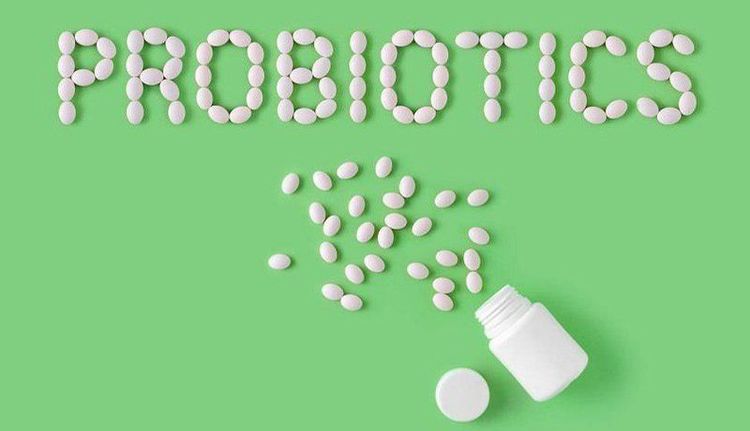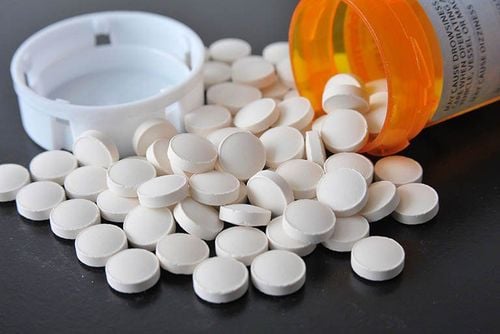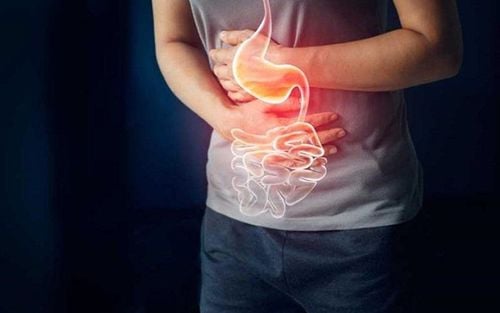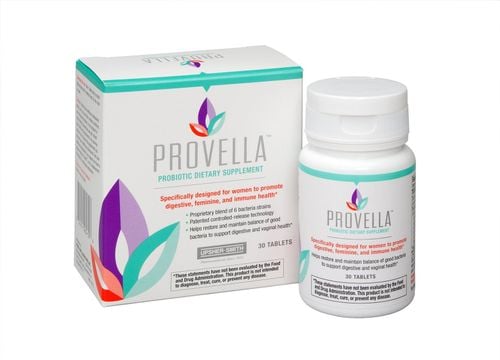This is an automatically translated article.
The article was professionally consulted with Specialist Doctor I Vo Thi Thuy Trang - Gastrointestinal Endoscopy - Department of Medical Examination & Internal Medicine - Vinmec Danang International General Hospital.1. When to take probiotics?
Some probiotic manufacturers recommend taking probiotics on an empty stomach, while others recommend taking it with food.Although it is difficult to measure bacterial viability in humans, some studies suggest that the microorganism Saccharomyces boulardii exists in equal numbers with or without food.
On the other hand, Bifidobacterium and Lactobacillus bacteria survive best when taken 30 minutes before a meal. However, timing consistency is probably more important than whether you take probiotics with food.
A one-month study showed that probiotics caused positive changes in the gut microbiome regardless of whether they were taken with a meal or not.
The microorganisms used in probiotics have been tested to ensure that they can survive different conditions in your stomach and intestines. However, taking probiotics with certain foods can optimize their effects.
In one study, the survival rate of probiotics was improved when supplemented with oatmeal or low-fat milk, compared with water or apple juice alone. This study shows that a small amount of fat can improve the survival of bacteria in your digestive tract.
Lactobacillus probiotics may also survive better with sugar or carbs, as they rely on glucose when in an acidic environment.

2. What are the benefits of probiotics?
Probiotics can keep your gut healthy by preventing the growth of harmful microorganisms, strengthening the intestinal barrier, and restoring bacteria after disturbances caused by illness or medications. like antibiotics.While probiotics may also support a healthy immune system and oral, skin and mental health, research on these benefits is limited.
Some of the live microorganisms found in probiotic supplements are also found in cultured or naturally fermented foods, including yogurt, kefir, sauerkraut, and kimchi.
These foods are thought to be linked to helping lower blood pressure, blood sugar, cholesterol and weight. If you don't regularly eat fermented foods, you may want to consider taking a probiotic supplement.
If you have a specific health condition, you may want to consider a specific strain of probiotics or consult a medical professional to find the best one for you.
Experts agree that Lactobacillus and Bifidobacterium strains are beneficial for most people. In particular, the bacterial strains Lactobacillus rhamnosus GG and Saccharomyces boulardii could reduce the risk of antibiotic-associated diarrhea, while the E. coli Nissle 1917 strain could help treat ulcerative colitis.
Meanwhile, probiotics containing Lactobacillus, Bifidobacterium, and Saccharomyces boulardii seem to improve symptoms in some people with irritable bowel syndrome (IBS), constipation, and certain types of diarrhea.
Probiotics are also being studied for many other conditions. Not much research has been done yet, but some people say that probiotics have helped them:
Prevent and treat yeast infections Prevent and treat urinary tract infections Lactose intolerance Skin conditions like illness eczema Treats certain infections of the stomach and respiratory tract, especially in children Treats allergies and asthma Reduces inflammation, such as rheumatoid arthritis
3. Different types of probiotics have different effects
You can take probiotics in many different forms, including capsules, lozenges, granules, powders, and drops. You can also find probiotics in a number of foods and drinks, including some yogurts, fermented milks, chocolates, and flavored drinks.Most of the bacteria in probiotics must endure digestive acids and enzymes before entering your small intestine.
Probiotics in capsules, tablets, granules, and yogurt tend to stay in your stomach acid better than powders, liquids, or other foods or drinks, regardless of how they are taken. when.
In addition, the bacteria Lactobacillus, Bifidobacterium and Enterococci are more resistant to stomach acid than other bacteria.
In fact, most Lactobacillus strains come from the human intestinal tract, so they are inherently resistant to stomach acid.
Research shows that it takes between 100 million and 1 billion microorganisms in probiotics to make it to your gut for you to get the health benefits.
Since the bacterial cells in probiotics can die during the shelf life of the product, make sure you buy a reputable product that guarantees at least 1 billion live bacteria, usually listed as colony-forming units (CFU) on the product's label.
To ensure effective use, you should use probiotics before the expiration date and store according to the instructions on the label. Some products can be kept at room temperature while others must be refrigerated.

4. Side effects and interactions of probiotics
Probiotics do not usually cause major side effects in healthy people. However, you may experience minor symptoms, such as gas and bloating. These symptoms will usually improve over time, but taking a probiotic at night can reduce symptoms that appear during the day.If you have an immune system problem or another serious health condition, you may be more likely to have problems. Some reports have linked probiotics to serious infections and other side effects.
The people most likely to experience side effects are people with immune system problems, people who have had surgery, and others who are seriously ill. Do not take probiotics if you have any of these problems.
If you take a probiotic to prevent antibiotic-associated diarrhea, you may be wondering if antibiotics will kill the bacteria in your probiotic. However, these strains of bacteria designed to help prevent antibiotic-associated diarrhea will not be affected. Remember that it is safe to take probiotics and antibiotics at the same time.
If you take other medications or supplements, it's best to discuss potential interactions with your healthcare provider. That's because probiotics can increase their effectiveness.
Probiotics contain live microorganisms that can promote your gut health. While research shows that there are some strains of bacteria that can survive better if taken before meals, timing of your probiotic intake is less important than consistency. So you should take your probiotics at the same time each day.
Please dial HOTLINE for more information or register for an appointment HERE. Download MyVinmec app to make appointments faster and to manage your bookings easily.
References: healthline.com, webmd.com














